Prison abolition work is a nonstop commitment.
I try to slow down in the summer by minimizing the hours spent working. In order to balance work with leisure, I travel and take advantage of networking/learning opportunities in other cities. It’s a great trade-off and eases some of the tensions of the day-to-day abolition work. I usually attend conferences.
Below is a report on some of the conferences I attended. I also am including a report on ongoing hunger strikes because even when we take a break, prison issues don’t, and the fight doesn’t stop.
Fight Toxic Prisons Convergence 2019 — Gainesville, Florida
Campaign to Fight Toxic Prisons (FTP)
Fight Toxic Prisons is the intersection of prison abolition and environmentalist movements. FTP is an intergenerational, multi-racial collection of individuals and movements. It is inspired by those most impacted: environmental and political prisoners, jailhouse lawyers and environmental protectors.

Photo courtesy of Shandre Delaney
FTP challenges the prison system that puts prisoners at risk of dangerous environmental conditions, as well as the impacts to surrounding communities and ecosystems.
This mission of FTP is to build momentum across, bridges between and solidarity amongst the movements for ecological justice, environmental justice and prison reform/abolition.
For the past four years, in June, hundreds of radical minds have come together in cities impacted by mass incarceration and environmental injustice. This year’s Convergence took place in Gainesville, Florida.
Many state and federal prisons within an hour of Alachua County face many environmental justice issues. Florida prisons are impacted by hurricanes and have some of the worst water quality. Meanwhile, prison labor is used to clean up after hurricane damage and clean the dead fish from toxic red tides.
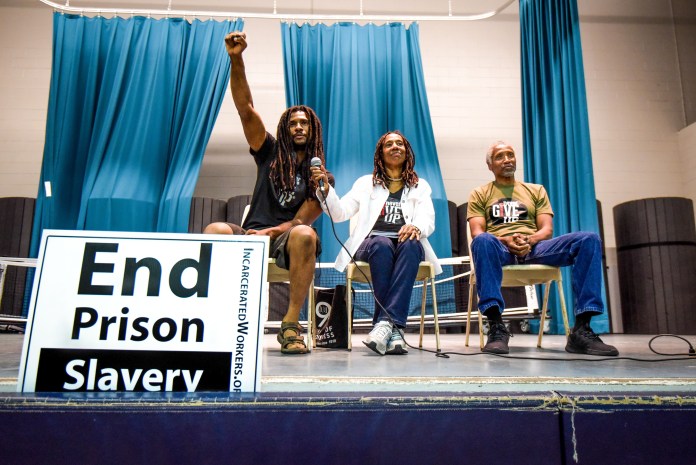
Photo courtesy of Shandre Delaney
The University of Florida campus, where workshops were held, is home to buildings named after those who opposed the passage of the Civil Rights Act and school integration. Also, of great importance is that Florida was once home to many indigenous tribes.
Through the annual convergences, a space is created in which various movements and prisoners can collectively explore how they might achieve liberation and justice. It is a space to share tactics, strategies and experiences to take away as tools to achieve local victories. The convergence is a weekend of plenaries, workshops and breakout groups ending in a direct action on the last day. The weekend features speakers and moderators from a wide range of movements and ideologies.
This year’s convergence began with a special announcement that plans to build a prison atop a mountain in Letcher County, Kentucky, were discontinued due to lawsuits from prisoners and activists. Acknowledgement was made that the land we were on was land that had been stolen and colonized. Panels and workshops encompassed topics ranging from trans and queer prisoner support, incarcerated indigenous protectors, to support for Palestine and black liberation.For the difficult conversations, a conflict resolution person was on duty.
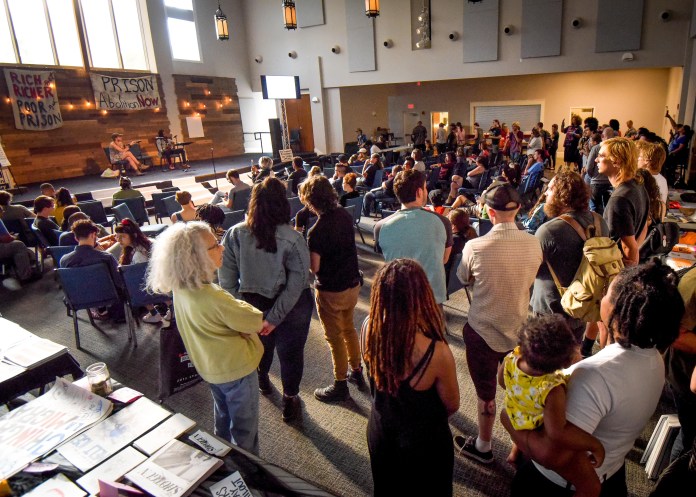
Photo courtesy of Shandre Delaney
The most enlightening component of the convergence was to talk and learn directly from those impacted. By way of call-in participants, attendees are educated by political prisoners and jailhouse lawyers. In person on the panels, we heard from activists, advocates, water protectors fand the formerly incarcerated.
There was an abundance of information from those presenting and from the many local and visiting organizations who tabled at the event. No convergence is complete without an evening of entertainment by the activists, who are also performing artists.
The weekend concluded with a Juneteenth/Father’s Day Bailout at the Alachua County jail.
2019 Convergence Highlights
News
Prisoners and Activists Stop New Prison on Coal Mine Site in Kentucky
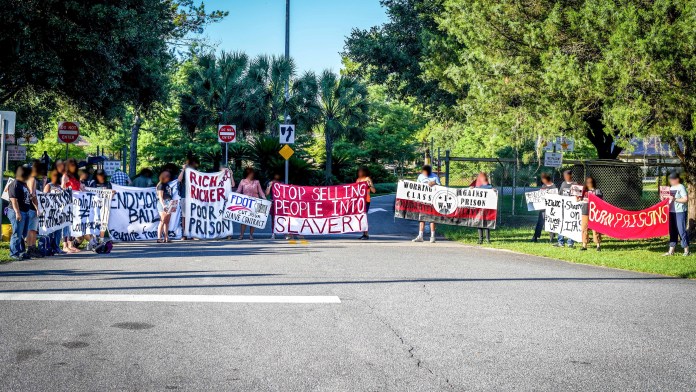
Photo courtesy of Shandre Delaney
Convergence Panel Videos
Debbie Africa, Mike Africa Sr, and Mike Africa Jr.
The Africa family are ecopolitical prisoners who were recently freed after decades in prison for their involvement with the MOVE organization.
Mumia Abu-Jamal, Kevin Rashid Johnson, KC Canada, Chairman Shaka Zulu and Kwame Shakur
Political prisoner call-in and live panelists discuss the environment, black liberation and other topics.
FTP Action Media Release
Juneteenth/Fathers Day Bailout
A program sponsored by the Legal Empowerment and Advocacy Hub (LEAH) — a local affiliate of the Participatory Defense network and the Freedom Fund and several other organizations — aims to free dads in Alachua County, Florida.
Poor People’s Moral Action Congress — Washington, D.C.
History of the Poor People’s Campaign
In 1967, a year before the death of the Rev. Dr. Martin Luther King, he was planning to unite poor people from across America to march on Washington. The intent of the march was to bring focus to the plight of poor people of all races and that they all wanted a better life. He wanted to change the narrative in which the poor were imagined. He envisioned them organizing and becoming a force of their own demanding their needs be met. He described it as a “multi-racial, nonviolent army of the poor, a freedom church of the poor.”
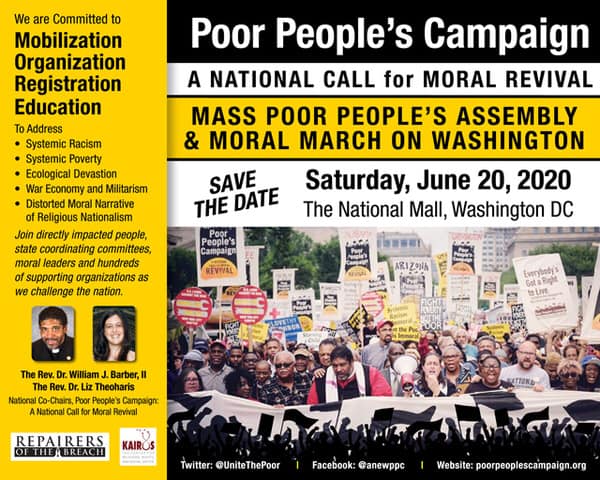
During the week of the 2016 DNC convention, the Rev. William Barber II, along with other clergy, held a gathering to make a special announcement. Rev. Barber is the president of Repairers of the Breach, a nonpartisan organization with a moral agenda. They challenge the position that the moral issues of this country are abortion, prayer in public schools and property rights, and instead affirm that the moral concerns of faith are the way that the poor, women, LGBTQ, children, workers, immigrants, communities of color and the sick are treated. This meeting was a national call for a moral revival.
They announced the relaunch of the Poor People’s Campaign. Committees were formed to create delegations in each state. These delegations would then participate in coordinated actions across the country at state capitals and locally in respective cities. These actions were given names such as Moral Mondays, which Dr. Barber began doing in North Carolina in 2013.
2019 Moral Action Congress
ln June 2019, delegations from each state attended a Moral Action Congress in Washington, D.C. I attended with the delegation from Pennsylvania. There was a huge opening plenary every day followed by workshops.
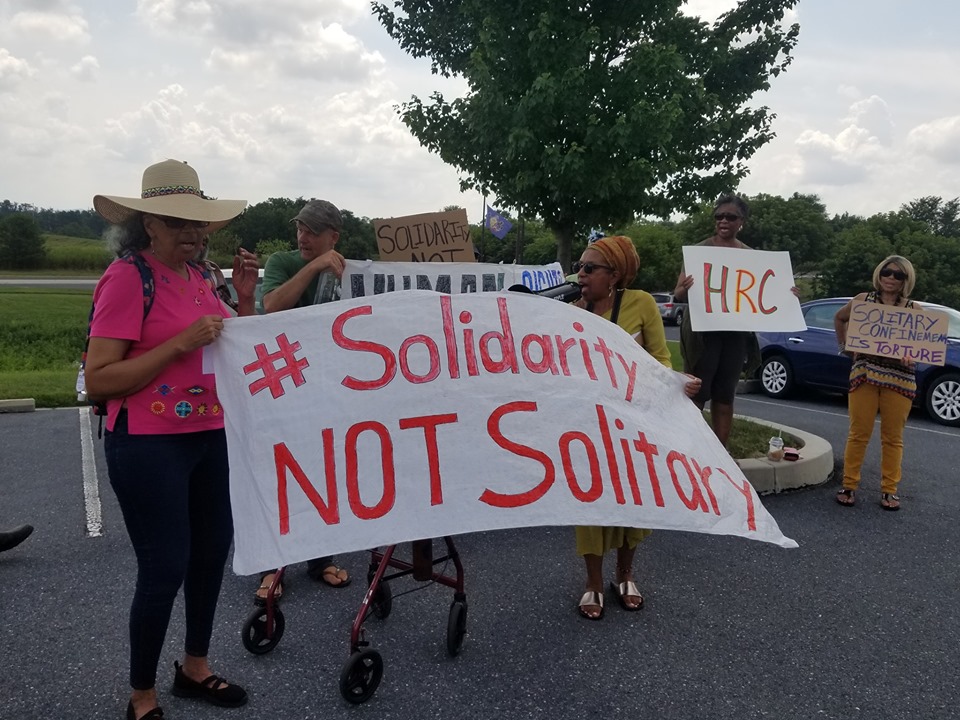
The days always begin with song in the vein of the civil rights era. There were some major highlights of the Moral Action Congress, including a 2020 Democratic Presidential Candidate Forum. The Moral Budget was presented and explained. A committee of select delegates were sent to a Senate Budget Committee Hearing to share their stories on how they are impacted by poverty and the moral values politicians in our country overlook.
The three-day event ended with the announcement of plans for a June 2020 march on Washington to rival that which Dr. Martin Luther King would have wanted.
Nationwide Hunger Strikes
Hunger strikes is one of the few tools that prisoners have to bring light to issues they are facing. They are rarely reported by major media, and if you are not organizing around prisons, the general public may not know they are occurring.
It’s important they are recognized and publicized, otherwise we have a society that believes that mass incarceration is working, and there is no pause for complaint.
Similar conditions are being protested throughout the country. The most common complaints are toxic environmental conditions, brutal violence and torture at the hands of guards, solitary confinement, lack of or inadequate health care and non-consumable food that prisoners are being fed.
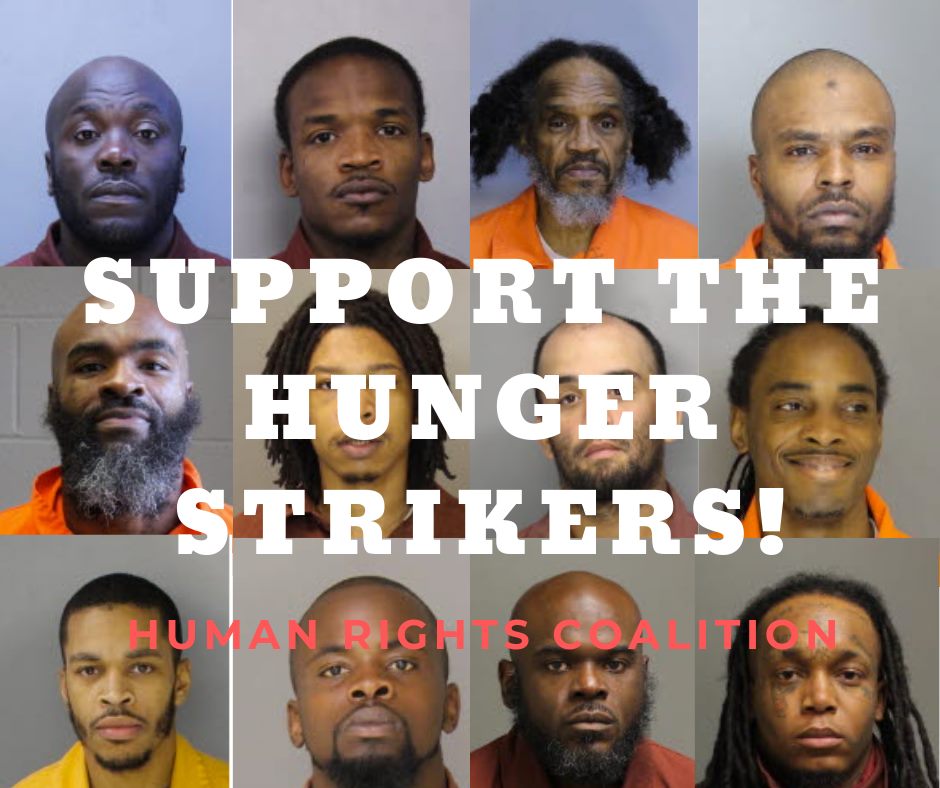
One of the more recognized organized hunger strikes was the 2013 California hunger strike at Pelican Bay in which more than 30,000 prisoners went on strike for 50 days. They had five core demands and organized around the agreement to end hostilities.
I have compiled a list of known most recent known hunger strikes.There may be more, but these are what have been reported to me
Known hunger strikes
Video: Human Rights Coalition protest outside Pennsylvania Governor’s Office
For more information on hunger strikes, click here.
Related article
What Changed After the Pelican Bay Hunger Strike?
Our Community Based News Room publishes the stories of people impacted by law and policy. Do you have a story to tell? Please contact us at CBNR. To support our Community Based News Room, please donate here.




